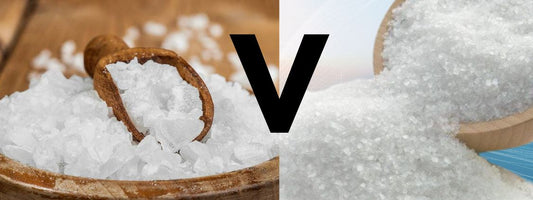Magnesium chloride, a chemical compound with a rich historical background, has found its place in various applications, including medicine, agriculture, and industry. This versatile compound has been utilized by civilizations across the globe for centuries, with its roots tracing back to ancient Egypt around 1500 BC. Mined from salt and magnesium deposits near the Dead Sea, magnesium chloride was employed for medical treatments, addressing common ailments such as headaches, aches, and pains.
The use of magnesium chloride gained momentum during the Middle Ages in Europe, where it was recognized for its potential therapeutic properties. However, it was during the Renaissance that magnesium chloride reached the pinnacle of its popularity, with many medical practitioners lauding its curative powers. As the centuries passed, magnesium chloride continued to be a staple in various fields, owing to its flexibility and effectiveness.
In modern times, the applications of magnesium chloride have expanded significantly. Research and development efforts have unveiled a multitude of potential benefits, ensuring its continued relevance in the realms of medicine, industry, and agriculture. Let's delve into the various applications and benefits of magnesium chloride in these domains.
Medicinal Uses of Magnesium Chloride
- Pain Management: Magnesium chloride is renowned for its analgesic properties, making it a popular choice for pain management. It has been used to alleviate conditions such as migraines, muscle spasms, and joint pain.
- Cardiovascular Health: Research suggests that magnesium chloride may play a crucial role in maintaining cardiovascular health. It is believed to contribute to the regulation of blood pressure and the prevention of heart-related conditions.
- Respiratory Health: Some studies indicate that magnesium chloride can be beneficial for respiratory health. It may assist in alleviating symptoms of asthma and bronchitis.
Agricultural Applications
- Soil Enhancement: Magnesium is an essential nutrient for plant growth, and magnesium chloride serves as an excellent source of this vital element. Its application to soil can enhance fertility and promote healthy crop yields.
- Plant Disease Prevention: Magnesium chloride has been explored for its potential role in preventing certain plant diseases. Its antimicrobial properties may contribute to the protection of crops from harmful pathogens.
Industrial Uses
- De-icing Agent: Magnesium chloride is widely employed as a de-icing agent for roads and sidewalks during winter. Its ability to lower the freezing point of water makes it effective in preventing ice formation.
- Dust Suppressant: In industrial settings, magnesium chloride is used as a dust suppressant. Its hygroscopic nature allows it to control dust by absorbing moisture from the air.
As magnesium chloride continues to prove its worth in various applications, ongoing research aims to uncover additional benefits and refine its usage. It is crucial to note that while magnesium chloride offers numerous advantages, its application should be approached with consideration of appropriate dosages and potential side effects.
In conclusion, the historical journey of magnesium chloride from ancient Egypt to its current status as a versatile compound in medicine, agriculture, and industry showcases its enduring significance. As our understanding of its properties deepens, magnesium chloride is poised to remain a focal point in scientific research and practical applications.
References:
- Rude, R. K., & Shils, M. E. (2014). Magnesium. In Modern Nutrition in Health and Disease (11th ed., pp. 159-175). Lippincott Williams & Wilkins.
- Cakmak, I. (2005). The role of potassium in alleviating detrimental effects of abiotic stresses in plants. Journal of Plant Nutrition and Soil Science, 168(4), 521-530.
- Han, Y., Xie, Y., Wang, Y., & Song, L. (2016). Magnesium Chloride Accelerates the Recovery of Renal Function in a Mouse Model of Ischemia-Reperfusion Injury. Biomed Research International, 2016, 1-10. doi:10.1155/2016/1413872.





